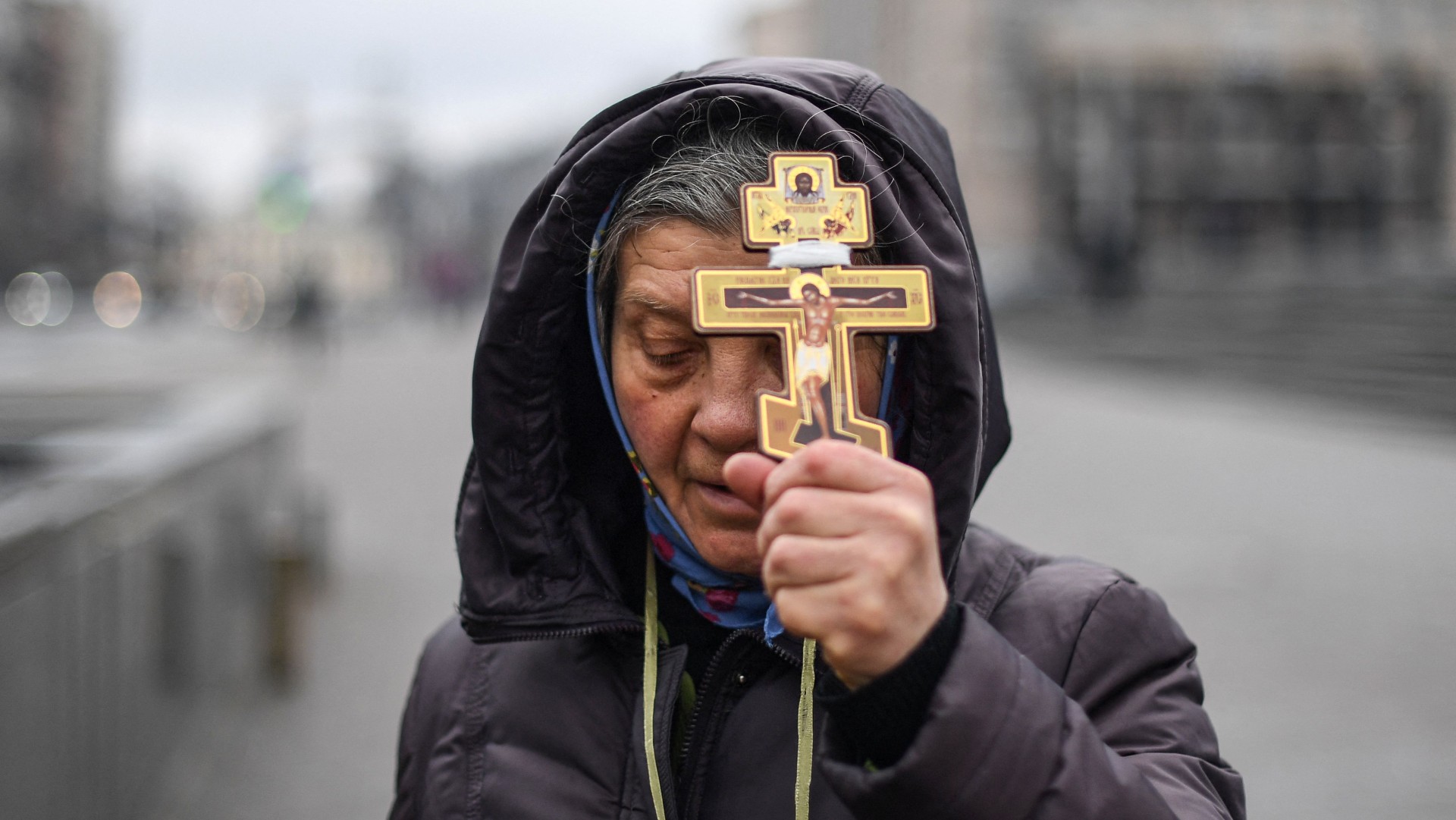Is it safe to visit Eastern Europe?
Foreign Office issues warning to British citizens in countries bordering Ukraine

A free daily email with the biggest news stories of the day – and the best features from TheWeek.com
You are now subscribed
Your newsletter sign-up was successful
Flights arriving and departing from UK airports have been ordered to avoid Ukrainian airspace after Russia launched a full-scale invasion of its neighbour overnight.
The Foreign Office has advised against all travel to Ukraine and told British nationals in the country to leave “immediately” if it is safe to do so.
“There are multiple reports of widespread military activity and real risk to life,” it warned. Russian President Vladimir Putin “launched a barrage of missile strikes and sent troops and tanks into Ukraine”, beginning what “many fear will be Europe’s worst conflict since the Second World War”, said the Financial Times.
The Week
Escape your echo chamber. Get the facts behind the news, plus analysis from multiple perspectives.

Sign up for The Week's Free Newsletters
From our morning news briefing to a weekly Good News Newsletter, get the best of The Week delivered directly to your inbox.
From our morning news briefing to a weekly Good News Newsletter, get the best of The Week delivered directly to your inbox.
Ukraine
British citizens were first advised to leave Ukraine two weeks ago when commercial flights were still available. At the time, The Guardian said the number was thought to be “in the low thousands”. “Many have strong ties there and are unlikely to leave,” added the newspaper.
Britons in the vicinity of military activity have been advised by the Foreign Office website to “stay indoors, away from windows, and remain alert to developments that would allow you to leave safely”. It adds that commercial routes out of the country are likely to be “severely disrupted” after Russia launched its major military assault. Wizz Air, Ryanair and Ukraine International Airlines have temporarily suspended their routes in and out of Ukraine.
Ukraine’s neighbours to the west
Anyone visiting the countries on Ukraine’s border, including Poland, Slovakia, Hungary, Romania and Moldova, has been advised by the Foreign Office to avoid crossing into Ukraine.
According to the Berlin-based magazine bne IntelliNews, security is being stepped up in Moldova amid fears that it “could be the next target for Russia”. For decades, the Kremlin has backed separatists in a narrow strip of land on the Moldovan border with Ukraine, called Transnistria. The UK Foreign Office advises against all travel to this area, which it says is “outside the control of the Moldovan authorities”.
A free daily email with the biggest news stories of the day – and the best features from TheWeek.com
Hungary, Poland, Slovakia and Romania are Nato members, unlike Moldova, which offers them the military protection of the alliance. And Nato is “ramping up its military response” after Russia’s invasion “by beefing up land, sea and air forces on its eastern flank and putting more than 100 warplanes on high alert”, reported The Independent.
North of Ukraine
To the north of Ukraine is Belarus, one of Russia’s closest allies. The Atlantic Council’s Brian Whitmore this week argued that the country is now effectively part of “Putin’s new Russian empire” after it announced “that the estimated 30,000 Russian troops currently in the country would remain there indefinitely”. The UK Foreign Office advises against “all travel” to eight regions of Belarus and “all but essential travel” to the remainder of the country.
As the world watches Ukraine, the three Baltic states – Estonia, Latvia and Lithuania – are focused on what Moscow’s actions in Belarus means for their security, said the Financial Times.
An imminent attack on the Baltics, “the only ex-Soviet countries to have joined the EU and Nato”, seems unlikely, said the paper. However, they “worry about Russia’s ability to cut them off from the rest of Europe via the Suwalki gap, the narrow 65km Polish-Lithuanian border, seen as one of Nato’s most vulnerable points”.
Despite these concerns, the Foreign Office notes that most visits by British travellers to the Baltics – as well as to Poland, Romania and Moldova – are “trouble free”.